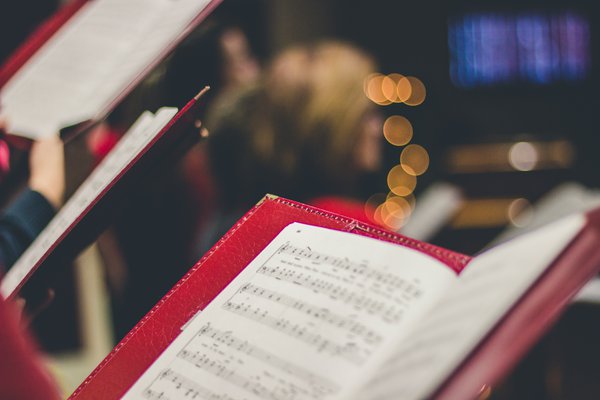Stroke patients who struggle to communicate may regain their abilities by singing in a choir, a new study suggests.
Music therapy is not a new concept, but the use of singing – particularly choral singing – as a part of aphasia rehabilitation has not been as well studied as other forms.
Aphasia, a disorder that affects how a person communicates, usually occurs suddenly after a stroke or a head injury, but it also can gradually develop from a slow-growing brain tumor or a degenerative brain disease. Depending on the extent of the damage to the brain, aphasia can affect speech and the ability to write and understand the spoken and written word.
About 20% to 40% of stroke survivors develop some type of aphasia, The Stroke Foundation estimates. Nearly half of these patients still struggle to communicate one year after their strokes. Research has shown that most stroke patients are able to retain their abilities to sing – even those with severe aphasia.
Researchers in Finland found several types of singing training – choral singing, melodic intonation therapy and tablet-assisted singing training – to be effective additions to aphasia rehabilitation.
- MORE HEALTH
- Many Pennsylvania homes have high radon levels; here is how to detect the dangerous gas
- Dehydration isn't just a summer concern; Make sure to drink enough water during the winter, too
- Sesame named a major food allergen by the FDA; here's what you need to know
Though singing therapy is typically conducted via individual sessions, the researchers found that group training offered patients and their families opportunities for peer support. This is important, the researchers said, because aphasia can affect quality of life, making a patient feel isolated from others. Family caregivers who participated in the group sessions reported feeling less stressed afterward, too.
The study participants were randomly assigned to receive four-month, group singing therapies in addition to the standard of care. They fared better than people who only received the standard of care, researchers said. The therapies improved their everyday communications and responsive speech production within five months, and increased the patients' social participation.
Singing therapy is most effective for stroke patients whose brain damage was limited to the left hemisphere. The right hemisphere controls singing.
Researchers at Beth Israel Deaconess Medical Center in Boston also have compared the results of conventional speech therapy to singing therapy in stroke patients. They found that melodic intonation therapy can remold the brain by multiplying and thickening the nerve fibers in the singing center of the brain.
Music therapy has been around for decades. Studies have found that it not only can be an effective speech therapy after a stroke, but it also benefits people with cancer, cardiovascular disease or autism. Music therapy has been shown to reduce pain and anxiety, too.
Traditionally, music therapy falls into two categories: receptive music therapy, which is based on listening, and active music therapy, which is based on sound production by voice, body percussion or the use of instruments.
Research has shown that even just listening to music can help with stroke recovery by improving memory, attention and mood.


